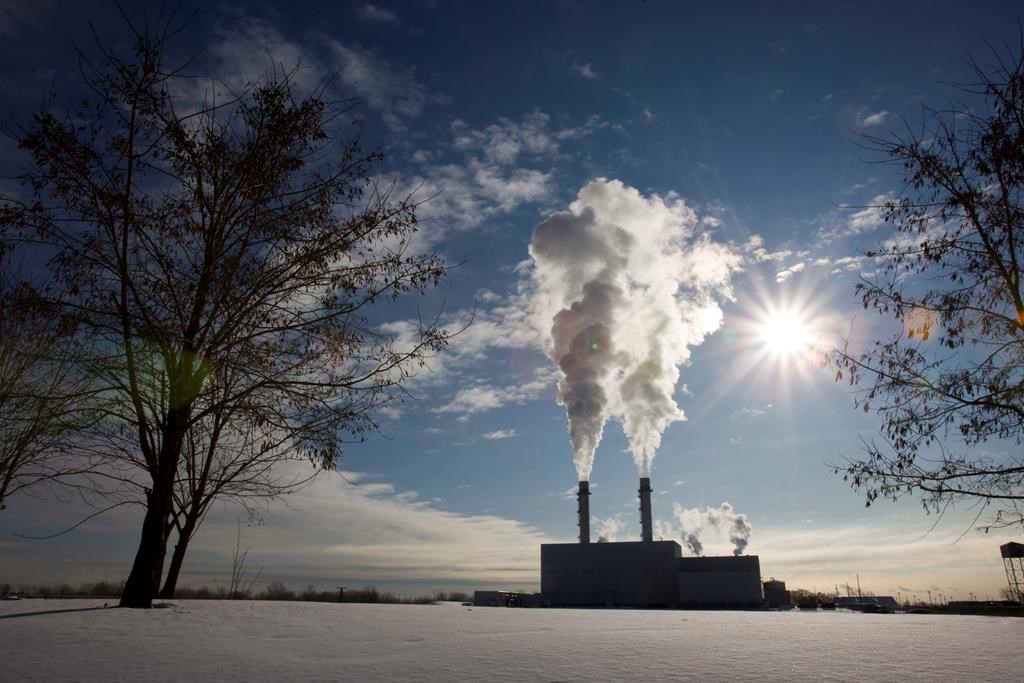
Photo by The Canadian Press
CALGARY — A new forecast says Canada is on track for a significant reduction in fossil fuel use by 2050, even as electricity demand grows and demand for crude oil continues.
In a new report on long−term Canadian energy supply and demand outlook, the Canada Energy Regulator (CER) predicts unabated fossil fuel use (meaning fossil fuel combustion without carbon capture and sequestration) will decline 62 per cent by 2050.
“Our projections show that Canadians use far fewer fossil fuels in the future,” said CER chief economist Darren Christie on Thursday. “By 2050, coal nearly disappears and the use of fossil fuels made from oil declines, especially gasoline and diesel for transportation.”
The forecast suggests Canadians will use significantly less gasoline and diesel in coming years, resulting in a 43 per cent decline in the use of refined petroleum products by 2050.
Electricity use could rise by 45 per cent as Canadians transition to electric vehicles, according to the CER. The report predicts low−cost wind and solar power will be used to meet the rise in demand.
Canadian crude oil production growth is expected to peak at 5.8 million barrels per day in 2032, the CER says, and then to decline slowly to reach 4.8 million barrels per day in 2050, only slightly below today’s levels.
The report says that is because of the nature of Canada’s oilsands facilities, which are long−lived and have low operating costs once built. Production projections suggest the pipeline system out of Western Canada would still be nearly at capacity into the mid−2030s.
That is extremely concerning, said Dale Marshall, national climate program manager with Environmental Defence Canada.
“In 30 years, if our oil production is at the same level it is today, we’re in serious trouble,” Marshall said. “Because Canada is a high−cost, high−carbon oil producer, and if Canada is at the same level of production it’s at today, then that means other sources of oil will be even more so. And we’ll be cooked. That’s climate catastrophe.”
The forecast is based on the Canada Energy Regulator’s assumption that the current pace of increasing efforts to reduce greenhouse gas emissions in Canada and around the world will continue.
The regulator also laid out alternative scenarios, one that looked at energy demand in the event that there is a lack of additional climate action beyond current policies. This business−as−usual scenario would see crude oil production peak at 6.7 million barrels per day in 2044.
Marshall said he was disappointed by how “pessimistic” the CER was in its forecast. Even its scenario that assumes an acceleration of climate policy efforts in years to come makes it clear that net−zero by 2050 are unlikely to be met.
“Their plan doesn’t even show Canada achieving its Paris climate commitments,” Marshall said. “I think that the projections are unrealistic and overly pessimistic, in terms of what we might be seeing in terms of climate action in Canada and around the world.”
However, Ben Brunnen, chief economist for the Canadian Association of Petroleum Producers, said he thinks the CER overshot the mark when forecasting a decline in Canadian oil production by 2050. He said CAPP believes Canadian oil and gas producers have the capacity to invest in technologies that will allow them to meet more stringent policies around emission reduction, while still growing production to meet global demand.
“Beyond 2035, there are so many variables that it creates pretty substantial uncertainty. But our expectation is we would not see as significant decline as what CER is anticipating,” Brunnen said. “I would actually expect that the Canadian oil and gas industry would potentially have a more favourable growth profile, compared to what CER is indicating.”
The Canada Energy Regulator also looked, for the first time, at what Canada’s electricity system might look like in a net−zero world. In these scenarios, the emissions from the electricity sector drop dramatically, with battery storage playing a significant role alongside immense growth in wind and solar.
The International Energy Agency said in October that global demand for fossil fuels could peak by 2025. However, the IEA also said oil demand is likely to remain at three−quarters of current levels by 2050, which would not allow countries to meet their international climate targets.
This report by The Canadian Press was first published Dec. 9, 2021.
Amanda Stephenson, The Canadian Press
- 0098 SASPO-2874_Self Serve Campaign_New Connects_Youtube_v30098 SASPO-2874_Self Serve Campaign_New Connects_Youtube_v3
- 0100 Turnbull Project Manager0100 Turnbull Project Manager
- 0099 Mryglod Steel 1080p0099 Mryglod Steel 1080p
- 0097 Eagle Sky Ventures LTD0097 Eagle Sky Ventures LTD
- 0095 Fast Trucking nearly 70 years good at it0095 Fast Trucking nearly 70 years good at it
- 0053 Kingston Midstream Westspur Alameda Click Before You Dig0053 Kingston Midstream Westspur Alameda Click Before You Dig
- 0092 Turnbull projects big and small0092 Turnbull projects big and small
- 0046 City of Estevan This is Estevan Teaser0046 City of Estevan This is Estevan Teaser
- 0087 Lori Carr Coal Expansion0087 Lori Carr Coal Expansion
- 0077 Caprice Resources Stand Up For Free Speech0077 Caprice Resources Stand Up For Free Speech
- 0076 Latus only0076 Latus only
- 0061 SIMSA 2024 For Sask Buy Sask0061 SIMSA 2024 For Sask Buy Sask
- 0055 Smart Power Be Smart with your Power office0055 Smart Power Be Smart with your Power office
- 0051 JML Hiring Pumpjack assembly0051 JML Hiring Pumpjack assembly
- 0049 Scotsburn Dental soft guitar0049 Scotsburn Dental soft guitar
- 0041 DEEP Since 2018 now we are going to build0041 DEEP Since 2018 now we are going to build
- 0032 IWS Summer hiring rock trailer music
- 0022 Grimes winter hiring
- 0021 OSY Rentals S8 Promo
- 0018 IWS Hiring Royal Summer
- 0013 Panther Drilling PO ad 03 top drive rigs
- 0006 JK Junior
- 0002 gilliss casing services0002 gilliss casing services
- 9002 Pipeline Online 30 sec EBEX9002 Pipeline Online 30 sec EBEX
- 9001
